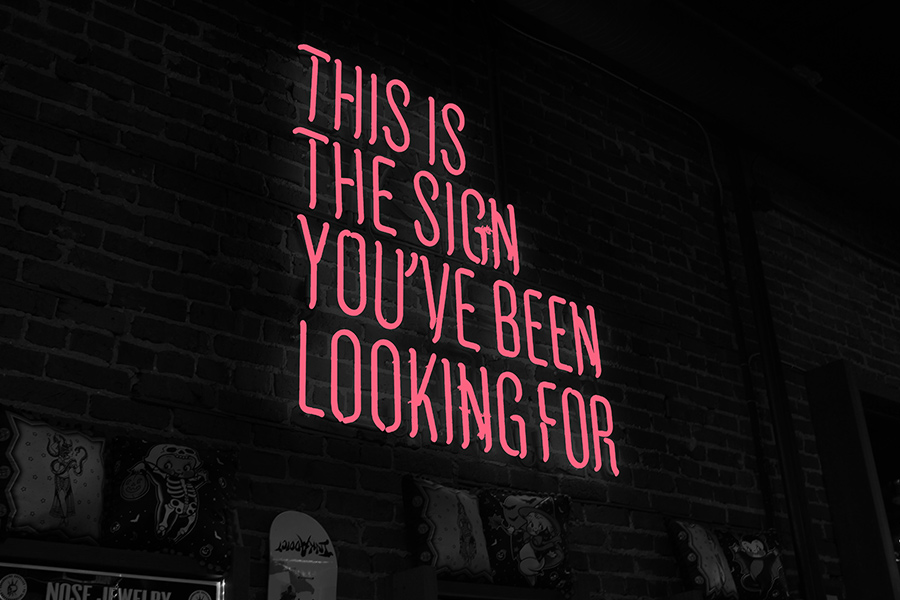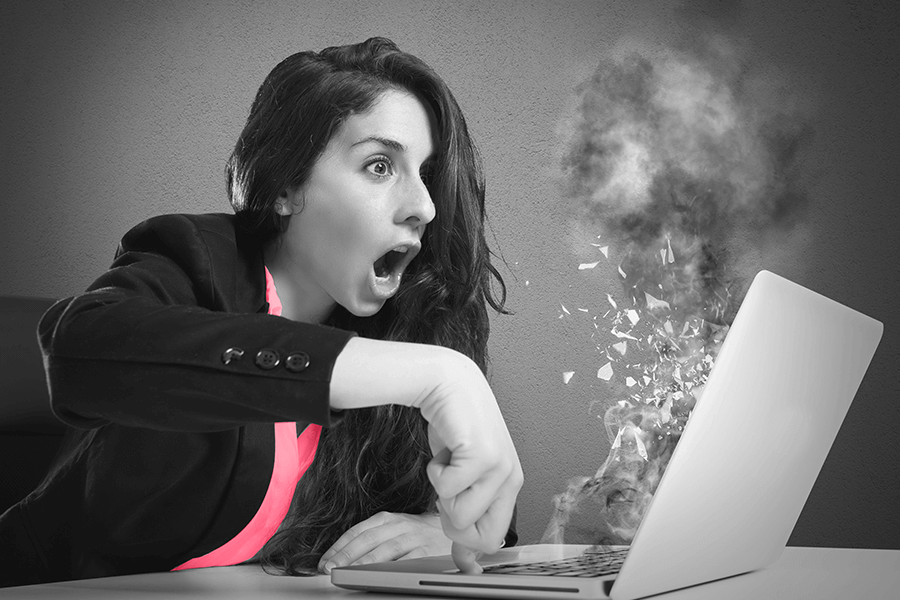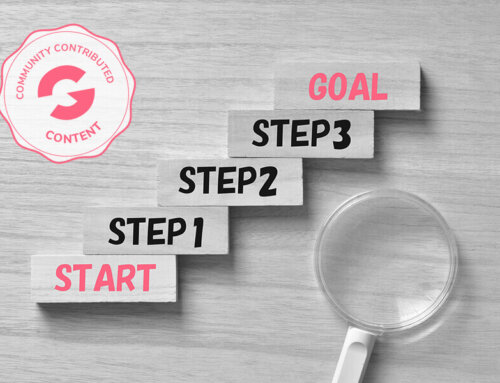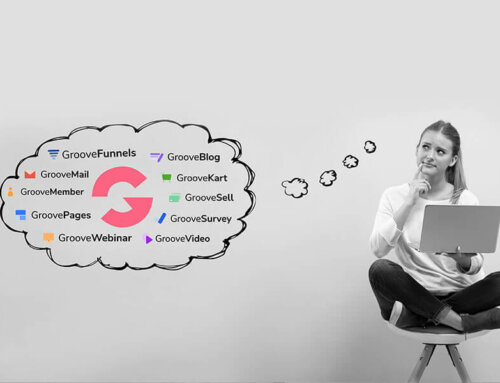What fills your cup? Yes, we’ve turned to metaphors. But we promise it’s for a good cause so just bear with us.
“Yoga, meditation, journaling, and 7-9 hours of uninterrupted sleep.” As an entrepreneur, you’ve received all of this wonderfully simplistic advice before. They’re a list of suggested activities that successfully combat the side effects of running a business – namely sleep deprivation, isolation, burnout, and deprioritizing one’s mental health. And they all sound like achievable, painless solutions. So, what’s the problem?
Well, the reality is that, if you’re hyper-focused on building your business, taking time to do any one of those things feel like an unaffordable luxury on any given day. Even if you tried to relax, you’d be sitting there thinking about how you’re wasting valuable time… which in itself becomes stressful. Yup, you know you’re an entrepreneur when the thought of relaxing is stressful.
Harvard Medical School has conducted studies on the effects of sleep deprivation, and found that those who are intoxicated outperform those who lack sleep. You’re better off running your online business drunk, essentially.
And guess what severely impacts most people’s ability to sleep? Sorry, fellow digital nomads, it’s blue light. It’s actually not a bad thing despite it’s bad rep. In fact it’s natural and it serves a distinct purpose. Morning sunlights contains a high concentration of blue light, and this makes complete sense, because blue light halts the production of melatonin, the sleep-inducing hormone. It’s the key to a balanced circadian rhythm (which is just a fancy way of saying that it helps your body regulate your sleep/wake cycle).
But it’s that sneaky artificial blue light, blasting into your retinas straight from your electronic devices, that’s a problem. Let’s conservatively say you spend on average 7 hours a day on your electronic devices for work, that’s a lot of time staring at blue light. So then it’s easy to see, with that conservative estimate in mind, how reaching for your device shortly before bedtime is… not good. Luckily, there’s medical-based advice on ways to mitigate the effects of blue light for better sleep.
Although easier said than done because as an affiliate marketer, ecommerce entrepreneur, or social media manager, there’s just no escaping the boundless notifications from these devices – not to mention the accompanying anxiety as you watch them build up. There’s a never-ending digital connection that’s really hard not to get caught up in, especially if your income depends on it, and so we’ve lost control over our electronic devices as a result.
All of us. Let’s just collectively admit that nobody actually has any balance or moderation because it’s a myth.
OK, fine. A tad dramatic, but seriously, it’s gotten to the point where people are suffering – severely and with detrimental consequences – from social media burnout.
In 2019, the WHO listed burnout as an occupational phenomenon “resulting from chronic workplace stress that has not been successfully managed”. Characteristics of burnout include “feelings of energy depletion or exhaustion, increased mental distance from one’s job or feelings of negativism or cynicism related to one’s job and reduced professional efficacy.” Recognize these feelings?
It’s not all doom and gloom, of course. Social media has created infinite opportunities and shifted the way people work – largely to their benefit. Digital nomads across the globe are typing away behind their screen right now, in the comfort of their favorite cafe, while earning money.
How many of them are aware of the exact number of hours they’re spending on their social media apps, though? There’s an app that is actually used to track how much time you’re spending on your devices – which is really useful when monitoring your online activities. But here’s an interesting thought: What if you had an app to track the time you spend offline, on the things that bring you fulfilment and joy? Any guess as to how those hours spent online would look against the hours spent offline?
And so, we now come full circle back to that initial question… What fills up your cup? If nothing comes to mind immediately, take a moment to think about it. Right now. We’ll wait.
…
No worries, still here. Take your time.
…
Honestly, don’t feel rushed. Perhaps it’s more than just one thing.
…
You’re done? Sure? OK, we’ll trust that you’re not just skipping ahead here.
Do you fill your cup by…
- Spending time with your family?
- Going to your child’s sport practice?
- Traveling with your partner?
- Having beach days with your friends?
If nothing popped into your head immediately, why do you think that is? We’d highly recommend you explore that further.
But we can point you in the right direction by saying that one of the things that will potentially, probably, most likely help you is time spent offline.

Wait a minute. Did we, a tech company that develops software, just recommend that our userbase and employees go offline? Yeah, absolutely!
And this isn’t revolutionary or unique to online entrepreneurs – it’s true for all professionals. Your job may feel mostly fulfilling and you could love what you do, which is all the more reason to keep your mental health in check so you can continue doing it.
You have to take a step back from social media in order to reignite that spark by simply taking the time to recharge. You’ll find that extra bit of energy flows over into your creativity and performance, ultimately enhancing your overall productivity. Just give yourself permission to recognize the signs, stop, and then come back once your cup is full.
It’s not going to be the solution to all your digital problems, but it certainly won’t hurt. With that being said, we’ll give you our number one tip for managing social media burnout. You really only need one because if you can successfully implement it, then it encompasses so much that it’s already going to be a catalyst game changer.
Set boundaries.
Limit your time on social media. There are apps that you can use for this, or you can designate a certain time of day for “offline time” as well as “tech-free zones”. In a similar vein, don’t check work emails, accounts or group chats after work hours. Or, at the very least, shut down screen time at least 2 hours before bedtime so that you stop monitoring right up until the moment you try to fall asleep.
Yes, it’s hard, really hard. Especially if it’s already a habitual part of your day. A nifty way of going about breaking this habit, is turning off your notifications or setting your phone to “Do Not Disturb” mode. If you don’t get the little preview or the unread notification, then it doesn’t demand your attention and you aren’t as tempted to check it.
It’s up to you to recognize when you’re approaching social media burnout – and don’t only look out for yourself, but check in on your colleagues too! It’s easier to identify signs when someone else gently points out the dangers to you. The truth is the internet is going nowhere, and your to-do list is going nowhere. Take some time to fill up your cup and become more aware of reaching burnout. This serves as your reminder to do so.





Leave A Comment